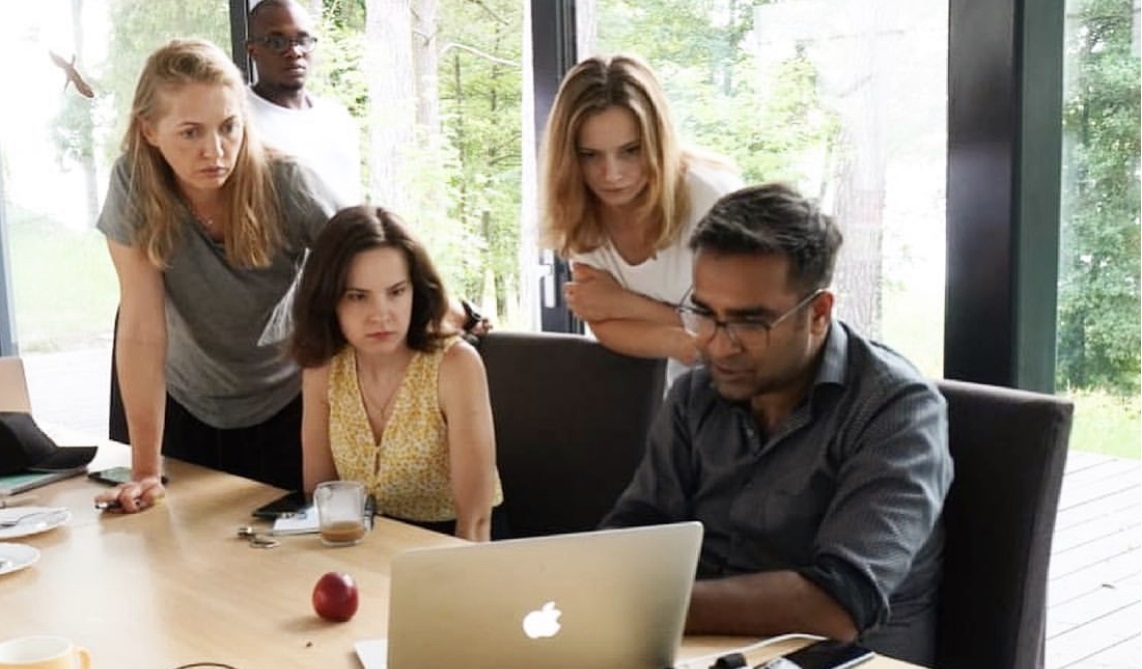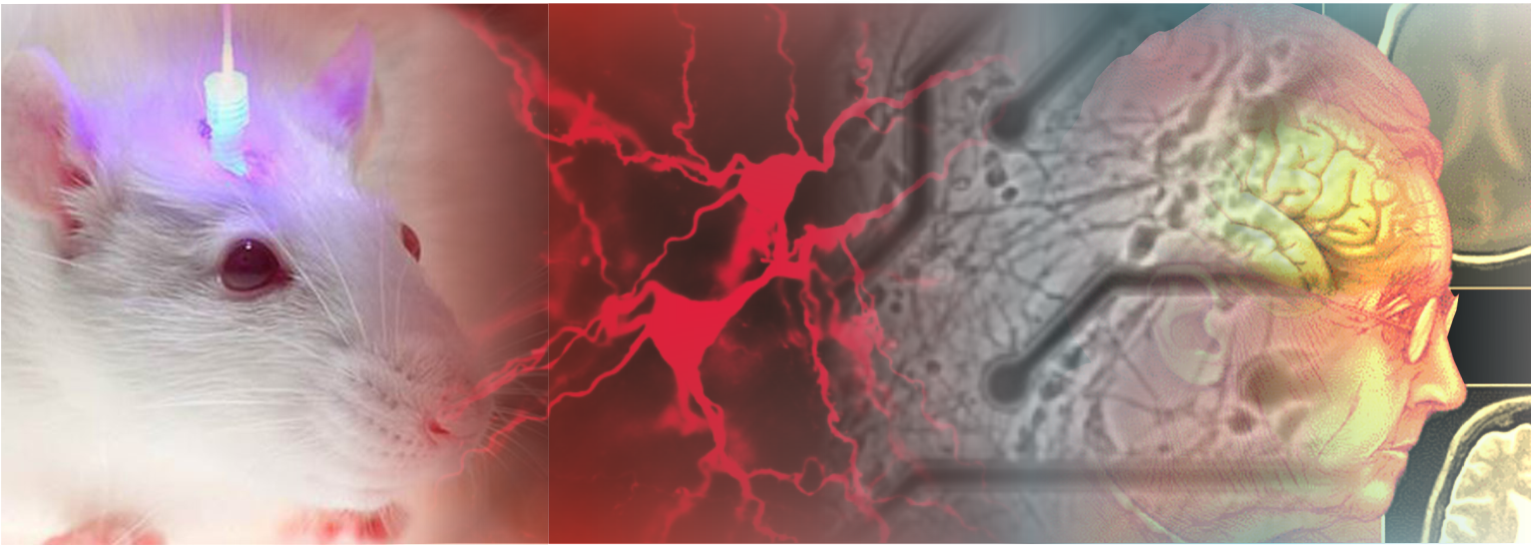



Sessions on scientific presentations skills at the Nencki Institute
We cordially invite you to participate in 4 exclusive sessions on scientific presentation skills on 7-8 October, 2021 at the Nencki Institute.
In each session:
- you will have a chance to present your scientific work after which you will receive exclusive individual feedback and mentorship on how you could make your presentations more clear, didactic, engaging, and stimulating.
- you can either give a 3-minute flash talk (oral pitch or powerpoint) that will be followed by a 5-minute feedback or a 12-minute powerpoint presentation that will be followed by an 8-minute feedback.
Five excellent mentors will take part in these sessions:
Thu Oct. 7th 09:30-12:30 Mentors: Rafal Czajkowski and Ali Jawaid
Thu Oct. 7th 14:00-17:00 Mentors: Jan Kaminski and Ali Jawaid
Fri Oct. 8th 09:30-12:30 Mentors: Mark Hunt and Ali Jawaid
Fri Oct. 8th 14:00-17:00 Mentors: Anna Malik and Ali Jawaid
You can sign up for the training using the link: https://tinyurl.com/4z8k2h8e.
Registration open till Monday Oct. 4th, 17:00
There are still 10 more places available (on a first come first serve basis)! – the long-format -12 minute talk only.
Please make sure to pick your 1st and 2nd preferred choice in the google forms.
Please note that you may attend only one session in which you actively participate. The sessions will be held in person.
The individual mentorship on presentation skills participation in the trainings will also be awarded with 0.5 ECTS.
The sessions are available to Nencki PhD students only.
See you there!

Workshop on scientific communication at the Nencki Institute
We cordially invite you to participate in the scientific communication workshop conducted by prof. Aleksandra Pękowska and dr Alicja Puścian.
We will examine the ins and outs of giving a great scientific talk to get you ready for the big day – PhD students’ conference .
The workshops will be held on Oct 4th, 2021 (Monday), 10:15-16:00
There will be some very special guests from King’s College London, Nencki and Yale. It is going to be an interactive and fun event. And lunch is on us, so you can leave your tupperware at home.
Participation at the workshop will be awarded with 0.5 ECTS.
Scientific communication workshop program
When: Oct 4 th , 2021 (Monday), 10:15-16:00
Where: Neurobiology Center (CN) lecture hall in the main building + Zoom Webinar platform (for
those who are unable to attend in person)
Lineup
Chairs: Aleksandra Pękowska & Alicja Puścian
10:15 – 10:30 – Introduction by Aleksandra Pękowska
Dioscuri Centre for Chromatin Biology and Epigenomics, Nencki Institute of Experimental
Biology, Polish Academy of Sciences
10:30 – 11:30 – “What holds us back: key issues with giving scientific talks”
Discussion panel with Laura Andreae
King’s Collage London & FENS-Kavli Network of Excellence
11:30 – 11:45 SHORT BREAK
11:45 – 12:45 – “Unique presentation formats” (virtual presentation, flash talks/pitch talks, scientific
communications with broader public e.g. TEDx)
Lecture by Ali Jawaid
Nencki-EMBL Partnership for Neural Plasticity and Brain Disorders – BRAINCITY
12:45 – 14:00 LUNCH BREAK – Pizza Time
14:00 – 15:00 “Facing the dragon of public speaking”
Interactive session with Alicja Puścian
Nencki-EMBL Partnership for Neural Plasticity and Brain Disorders – BRAINCITY
15:00 – 15:50 – “How (not) to give a talk”
Lecture by Jessica Cardin
Yale University
15:50 – 16:00 – Closing remarks



“Current approaches in neurological disorder research: from animal models to human brain on the chip” a course by Prof. Dirk Schubert – POSTPONED to April 2022!
We cordially invite you to participate in „Current approaches in neurological disorder research: from animal models to human brain on the chip” course which will take place from 04 – 08 April 2022 at the Nencki Institute of Experimental Biology (hall 1, first floor).
The lecture will be conducted by Prof. Dirk Schubert from Radboud University Medical Centre, Dept. of Cognitive Neuroscience, Nijmegen, The Netherlands.
Participants: 30-50
Language: English
Student profile: Master and PhD Students/postdocs from various disciplines (biology, chemistry, physics, medicine)
Stipends: FENS and IBRO-PERC provide 4 stipends of 750 EUR for Master and/or PhD students interested in attending this course. Through these stipends FENS and IBRO-P
To apply for stipend, click here
Registration to the course: phdoffice@warsaw4phd.eu
Deadline: November 05th, 2021
The course will count for 2 ECTS as “Advanced methods of biology”
Program of the course:
1. Ex vivo techniques for testing neurological networks
What techniques are currently golden standard in investigating neuronal network structure and function ex vivo? In the lecture the students will get an overview about how to assess single neuron structure and function up to neuronal population activity
2. Inhibitory/excitatory networks
Current research implies that distorted balance between excitation and inhibition is playing a key role in most neurodevelopmental and neurodegenerative disorders. After 1st introducing the wealth of different classes of excitatory and inhibitory neurons and their specific network integration, during a workgroup the students will work on simple model circuits in order to understand synaptic integration in basic excitatory/inhibitory networks.
3. Animal models for neurodevelopmental disorders
Today science can design animal models for many specific mutations, disorders and research readouts. During this lecture the students will get an overview of a selection of state-of-the-art genetic approaches that allow disease as well as cell type specific neuronal manipulation in translational research.
4. Cellular correlates of mind and memory in vivo
New approaches allow the monitoring and replaying memory in living animals on cellular level. In this interactive lecture the students will learn and discuss about how to use such animal models in fundamental research on memory and in understanding neurological disorders.
5. Human brain on the chip
How to investigate complex mental disorders and treatment strategies in animal models if the genetic etiology is often hardly comparable with the individual patient. Human derived pluripotent stem cells and the so called “human brain on a chip” approaches allow new ways for investigating gene-cellular phenotype correlation and provide a testing platform for patient specific drug testing. During the interactive lecture and using example disorders the student will learn the pros and cons about 2-dimensional neuronal cultures of human iNeurons and brain organoids.
6: Student presentations (up to 32 students) or examination (>32 students)
Dependent on the number of students enrolled in the course, the study aims will be tested either (a) by means of a 2hr exam on the last day (open questions) or (b) by students’ presentations and graphical abstracts.
For the presentations: groups of 4 students will chose one recent paper (list of relevant articles will be provided) which they will present during a 15 min Powerpoint presentation. All 4 students need to present and the presentation will be graded. Every group will also produce a short graphical abstract of their paper, which will produce a grade that will be combined with the grade for the presentation.
Timetable available here

Semester Completion Form – PhD students – summer semester
Note: We would like to remind you that it is necessary to submit a Summer Completion Form for the summer semester by 07 September 2021.


